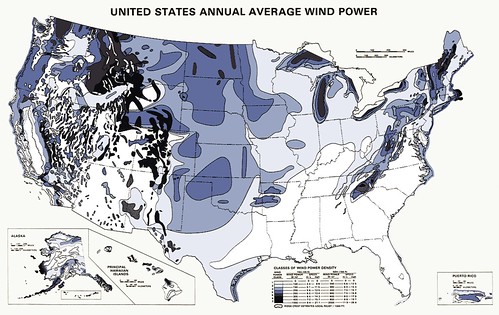All things appear and disappear because of the concurrence of causes and conditions. Nothing ever exists entirely alone; everything is in relation to everything else. -The Buddha
Marx: “constant revolutionizing of production uninterrupted disturbance of all social conditions, everlasting uncertainty and agitation distinguish the bourgeois epoch from all precious ones. all fixed, fast frozen relations, with their train of ancient prejudices and opinions are swept away, all new-formed ones become antiquated before they can ossify. All that is solid melts into air, all that is holy is profaned, and man is at last compelled to face with sober senses, his real conditions of life, and his relations with his kind.”
Unlike the Marshall Berman book, the reality of human conflict today is not so much about modernism as it is modernizing in the pre-industrial context, the civilizing and evolving, uneven yet parallel, paths from primitive, pre-modern communism through feudal modes of production, many of which still operate today whether the American Taliban or their calabash cousins in South Central Asia. The Koch Brothers, as corporate despots, are no different in their ideological commitments to devoting their wealth to an Anti-Communist Christianity that memorializes a martyr like John Birch and promotes inequality and suffering from uneven economic development. It is not a stretch to compare sacralized warfare and sectarian violence where today’s Oath Keepers see themselves as displaced Zen-samurai or Ronin of the Tokugawa Era. For example the original film The 47 Ronin directed by Kenji Mizoguchi is released near to the date of the Pearl Harbor attack. and the 1998 film of the same name by John Frankenheimer with script by David Mamet refers directly to the same historical event. ” The popularity of the tale grew during the Meiji era of Japanese history, in which Japan underwent modernization, and the legend became subsumed within discourses of national heritage and identity.”
The connection or family resemblance of feudal despotism and a repressive political state apparatus that attempts to control reproductive rights or democratic representation is now mobilized by ideology and ideological institutions such as Religions, Governments, and Mass Media and are mobilized much like Pat Buchanan’s meme of a Culture War. Its bastardization into a variety of discourses about race, class, and gender occupy much of the time and space of DK. As a matter of making the analysis of contemporary events, especially those exhibiting false consciousness like acts of racism or other violence clearer, some variants of Marxist methodology can be useful beyond some inerrant textual applications of Marxological theories. Excuse the lapse into the technical but the recent histories of human conflict as well as conflict among humans and nature require methods that can help make even the simplest of practices more coherent under the “shock doctrine” of crisis capitalism. There is a fluid boundary between culture war and actual war much as there is between abstract and concrete violence.

Althusser explains that the SA (State Apparatus) functions predominantly by violence or repression and only secondarily by ideology. Similarly the ISAs (Ideological State Apparatuses) function predominantly by ideology but can include punishment or repression secondarily.
This diary begins with a consideration of a recent book on Buddhist Warfare, a topic which has interested others as representative of the apparent contradiction of perhaps more Western stereotypes about the peaceful resistance to authoritarianism by some Buddhisms (Tibet) and the hegemonic behavior of other Buddhist majority regimes (Myanmar/Burma) where punishment or repression seems anomolous to a population significantly Buddhist. There is no space here to discuss the complex sectarian struggles of global religions and the focus here is on the material justification of cultural violence in the context of this recent book edited by Jerryson and Juergensmeyer Buddhist Warfare OUP 2010. The ideology of any religion and its worldly sectarian practices can be considered as some Marxists did in the last century as Ideological State Apparatuses (ISA) in the case of the ambitions of early to mid 20th Century Japanese imperialism, Buddhism was manipulated to become an ISA in terms of forging a national will and an industrialized state to sacrifice for humans claiming the status of feudal deity-monarchs. In the cases of contemporary Thailand and Myanmar among others, the identity of Buddhism and a ruling class creates a complex set of contradiction for both Buddhist resistance movements and military-political elites no different structurally than many other regimes Marx described as an Asiatic mode of production, (AMP), and that Oriental Despotism reproduces itself structurally in many contemporary Asian corporatized ruling class economies that have many different oligarchic names such as Chaebol in South Korea, family-controlled corporate conglomerates. In Japan before World War II, large holding companies formed wealth groups, or zaibatsu, which dominated most industry. The zaibatsu were dissolved after the war, but keiretsu-large, modern industrial enterprise groupings-emerged. And the tensions between the imperatives for military and economic self-defense as well as the need for corporatist, oligarghic, yet familial expansion create more challenges for the many corresponding Buddhisms.
MSDF Hyuga, a contemporary Japanese aircraft carrier classified as a destroyer:

What is important for this brief narrative is the point of view reconciling the complexity of many Buddhisms within the context of such societies, the expansion of rationalized violence against a populace and the rationalizing discourse of remote killing. This is where the army does the killing so one’s own responsibility is intact. Drone warfare can represent the instrumental separation and distance possible and even resemble the Buddhist position or relative autonomy on just violence. In these cases, that group or even individual violence or exploitation are situated in a discourse of class struggle that has an ideological structure consistent with other capitalist and even pre-capitalist practices. There is some literature on the political economy of arbitrary seasonal regional violence in France in the late middle ages. This same discourse exists in the justification or rationalization of individual and group religious practices in military organizations working for governments that represent a separation of church and state. This is historically a relatively new term considering the number of theocratic regimes that do not recognize that formal or informal separation in contrast to democratic rules of law which attempt to keep public order in a republic despite the actions of corporate despots.
The theory of the Asiatic mode of production, (AMP) was devised by Karl Marx around the early 1850s. The essence of the theory has been described as “[the] suggestion … that Asiatic societies were held in thrall by a despotic ruling clique, residing in central cities and directly expropriating surplus from largely autarkic and generally undifferentiated village communities.” The theory continues to arouse heated discussion among contemporary Marxists and non-Marxists alike. Some have rejected the whole concept on the grounds that the socio-economic formations of pre-capitalist Asia did not differ enough from those of feudal Europe to warrant special designation. Aside from Marx, Friedrich Engels was also an enthusiastic commentator on the AMP. They both focused on the socio-economic base of AMP society.
Marx and Engels were trying to reconcile why development was uneven in the East Asian context, partially to explain European colonialism and the creation of spheres on influence based on new forms of extractible exchange in the form of mobile surplus value, in this case, opium as a medium of exchange value.

Opium Godown (Storehouse) in Patna, Bihar (c. 1814)
“China, one of those faltering Asian empires, which one after the other fell prey to the entrepreneurial spirit of the European race, was so weak, so much collapsed, that it did not even have the strength to go through the crisis of a people’s revolution, so that an acute indignation has turned into a chronic and probably incurable disease, an empire, so much decomposed, that it was almost unable to rule its own people or to offer resistance to the foreign aggressors”.
Asiatic mode of production
This is a controversial contribution to Marxist theory, initially used to explain pre-slave and pre-feudal large earthwork constructions in China, India, the Euphrates and Nile river valleys (and named on this basis of the primary evidence coming from greater “Asia”). The Asiatic mode of production is said to be the initial form of class society, where a small group extracts social surplus through violence aimed at settled or unsettled band communities within a domain. Exploited labour is extracted as forced corvee labour during a slack period of the year (allowing for monumental construction such as the pyramids, ziggurats, ancient Indian communal baths or the Chinese Great Wall). Exploited labour is also extracted in the form of goods directly seized from the exploited communities. The primary property form of this mode is the direct religious possession of communities (villages, bands, hamlets) and all those within them. The ruling class of this society is generally a semi-theocratic aristocracy which claims to be the incarnation of gods on earth. The forces of production associated with this society include basic agricultural techniques, massive construction and storage of goods for social benefit (granaries).
Yet colonial extraction and power projected itself easily into East Asia in the 19th Century, partially because of the kinds of labor agreements made in parallel with native merchant capitalists as well as a hegemonic ensemble of colonizing projects, each bringing its own version of Orientalist (sic) value to Europe. Yet concurrently and administrative violence brought to a country has its relatively autonomous indigenous religion still operating as an ISA in parallel to missionary Christianity where spiritual volition could be retained.

Cetanā is a Buddhist term commonly translated as “volition”, “directionality”, or “attraction”. It can be defined as a mental factor that moves or urges the mind in a particular direction, toward a specific object or goal
It is no stretch to see the use of religion in legitimating state violence as seen in the image of the Taliban demolishing sacred Buddhist sites as motivating or rationalizing the initial invasion into Afghanistan and its continued use on a more informally profane way in the conduct of the subsequent wars. These are moments of justifying/rationalizing violence against self or Other (preemptive violence prevents a greater sin). In some historical cases they are the reasons for oppressing rival sects or religions to this day.






















Recent Comments